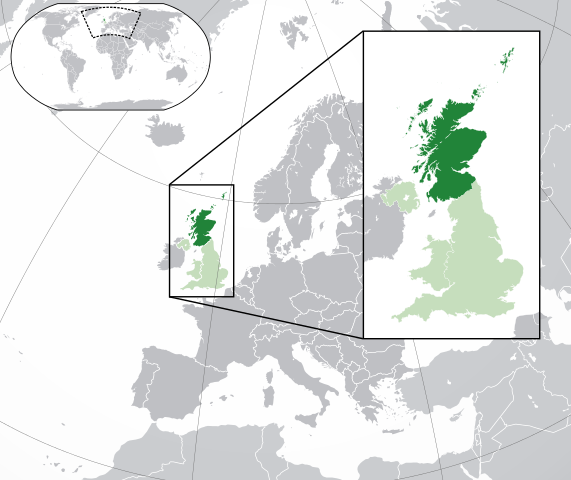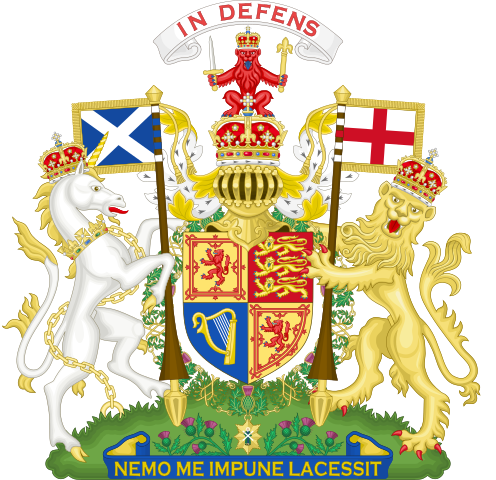More languages
More actions
| Scotland Alba | |
|---|---|
 | |
| Capital | Edinburgh |
| Largest city | Glasgow |
| Leaders | |
• Monarch | Charles III |
• First Minister | Humza Yousaf |
| Legislature | Scottish Parliament |
| Area | |
• Total | 80,231 km² |
| Population | |
• 2022 estimate | 5,436,600 |
Scotland is a constituent country of the United Kingdom occupying the northern part of the island of Britain. Scotland is semi-autonomous, and has its own parliament but the British Parliament has supremacy over the Scottish.[1] There are high levels of support for independence in Scotland but the British Government refuses to allow an independence referendum after the referendum in 2014 failed.[2]
History
Kingdom of Scotland 843-1707
Union of the Crowns
Following the death of English Queen Elizabeth I in 1603, the English throne passed to King James VI of Scotland making him King James I of England. Although Scotland would remain officially independent for another 100 years they were effectively united with the English under the Stuart monarchy with the Scottish Kings preferring to reside in England over Scotland.[3]
21st Century
In 2014 an independence referendum on Scottish Independence was held resulting in a rejection by 55.3% of the population.[4] However, in the following years the desire for independence has only grown, especially since the 2016 Brexit referendum in which 62% of Scots voted to remain in the EU against the wishes of the UK.[2]
Politics
The Scottish Parliament and Government were established in 1999, and have control over matters of health, education, justice, police, fire services, and housing in Scotland. There are 129 Members of the Scottish Parliament (MSPs) elected by a bourgeois democratic system of proportional representation known as the Additional Member System. The political party with the most MSPs forms the government with one MSP being elected First Minister, the head of the Scottish Government.[1]
References
- ↑ 1.0 1.1 "What's the difference between the Scottish Parliament and the Scottish Government?" (2023). Scottish Parliament.
- ↑ 2.0 2.1 Libby Brooks (2020-12-25). "Now Brexit is sealed, Scotland plunges into battle for the narrative" The Guardian.
- ↑ Neil Faulkner (2013). A Marxist History of the World: From Neanderthals to Neoliberals: 'The First Wave of Bourgeois Revolutions'. [PDF] Pluto Press. ISBN 9781849648639 [LG]
- ↑ "Scottish independence referendum: final results in full" (2014-09-18). The Guardian.


